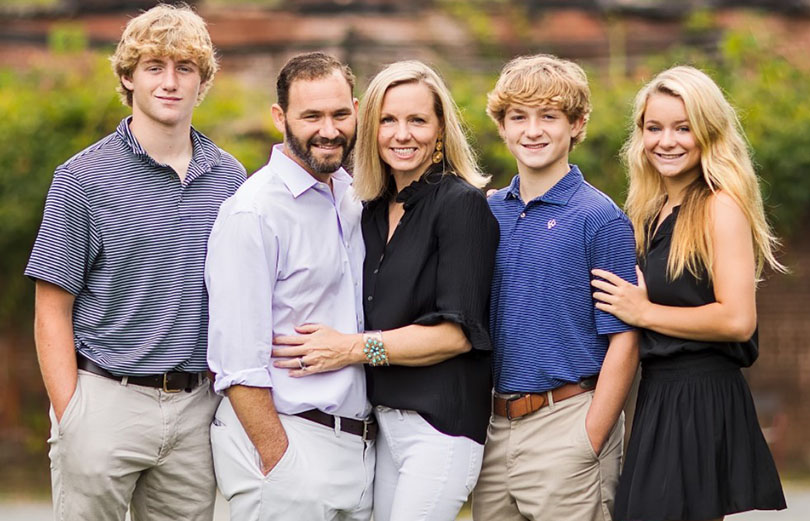Dr. Thomas Bradbury. Jr. and his wife Julie recently donated a $50,000 gift to the Medical College of Georgia to establish the Julie & Thomas “Tom” L. Bradbury, Jr., M.D. Endowment for the MCG 3+ Program & Rural Health Initiative.
The MCG 3+ Program compresses medical school to three years for students who commit to stay and provide health care services to patients in underserved areas of Georgia for at least three years. It is a major way that MCG is helping to curb the physician shortage across rural Georgia.
“In my practice as an orthopedic surgeon at Emory University, I regularly see patients who can’t find primary doctors in their respective communities,” said Bradbury, who graduated from MCG in 2001. Consequently, these patients are sometimes not medically ready for surgery because they have other health issues that must first be addressed.
“I believe strongly in augmenting the primary care network to provide the first line of defense against co-morbidities (illnesses),” Dr. Bradbury said.
It was this first line of defense that a young Tom Bradbury needed when he was diagnosed with Type 1 diabetes at age 15. Now the father of three teenagers, Bradbury vividly recalls the profound sense of hopelessness and despair he felt back then, wondering what the future held for him.
“When I received the proper treatment and was given the tools to manage my disease, my feelings of hopelessness were alleviated, and my sense of direction in life was restored,” Bradbury said. He decided that he wanted to offer this kind of life-enhancing intervention for others and became interested in medicine.
After graduating with a Bachelor of Science degree from Washington & Lee, Bradbury moved to Augusta to attend MCG in 1997. He said that he did not want to graduate with an unmanageable debt load, and he knew MCG provided a quality medical education.
“MCG was the most valuable post-grad medical education one could find, particularly when compared to its peer institutions,” said Bradbury, who subsequently completed his residency training in Orthopaedic Surgery at Vanderbilt University Medical Center and a Fellowship Adult Reconstructive Surgery at OrthoCarolina in Charlotte, North Carolina.
When Bradbury and his wife Julie recently learned of the MCG 3+ Program and Rural Health Initiative and of the need for scholarships for medical students who enter this pathway, they decided this was the perfect combination to address the matters that resonated most with them – alleviating student debt and enhancing patient care.
“The mission to train doctors on the ground level for the rural community is such an asset and is such a demand,” said Bradbury, who is an Associate Professor and who has served as Residency Program Director at Emory’s Department of Orthopaedics for the past decade.
Last June – over 20 years after he earned his MD degree at MCG – Bradbury returned to Augusta as the Elwyn Saunders Visiting Professor for the Department of Orthopaedics at MCG. “I so enjoyed catching up with amazing faculty, residents and students in the Orthopaedic Department at MCG. I was overwhelmed by MCG’s progress over the past two decades – not only in Orthopaedics, but also in the school of medicine as a whole.”
“Julie and I were especially pleased with the high quality of the research and patient care – not to mention the improved classroom and training facilities at the J. Harold Harrison, M.D. Education Commons,” said Bradbury, who never got to experience the state-of-the-art MCG home as a medical student.
Nevertheless, the Bradburys’ visit to MCG and tour of the Harrison Commons solidified their decision to support the MCG 3+ program. An expendable portion of their gift will assist a medical student immediately, while the remainder will grow in perpetuity, benefitting generations of students to come.
Bradbury shared that he believes strongly in the nobility of the profession of medicine and feels privileged to be able to improve the quality of life for others as an orthopedic surgeon.
Bradbury specializes in knee and hip replacement surgeries, which have grown in popularity since joint replacements provide life-changing relief from hip and knee pain for thousands of older Americans every year.
“I believe those who choose a career in medicine are helping humanity in ways that many professions aren’t capable of doing,” Bradbury said.

